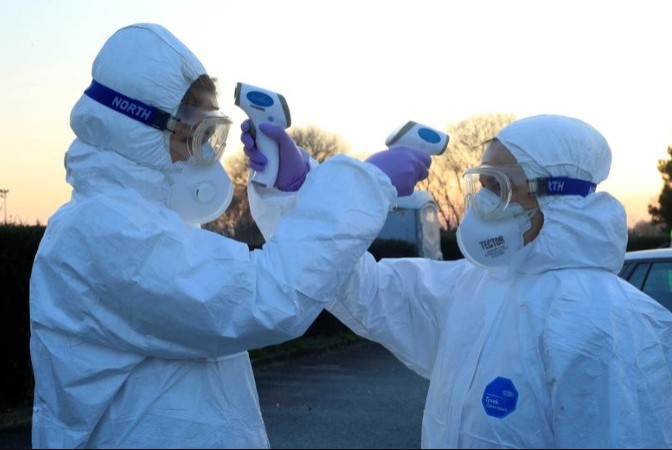Important Facts You Should Know About the Global Pandemic Coronavirus

The World Health Organization (WHO) has declared the global health threat COVID-19 as a pandemic. According to the latest reports, there are now more than 134,717 coronavirus cases in the world.
The virus has become the most disruptive pandemic in modern times. Multiple countries have issued travel bans and lockdowns due to the fast-spreading virus. To help you sort through the mishmash of reports and information about the virus, Latin Post has created a list of every fact you should know about coronavirus.
Incubation Period
Coronavirus has an incubation period that lasts up to 14 days, but symptoms, on average, will start showing, on the fifth day.
Anyone who is asymptomatic on the 12th day is unlikely to get symptoms. However, people who show no signs of coronavirus can still spread it to others.
Immunity
There have been no reports saying people who recovered from the virus developed immunity against it. It is simply too soon to tell. However, other viruses led to the development of antibodies in the body, so it may be possible.
There are reports from China of people who tested positive after being released from the hospital, but no further reports were given. One thing is for sure, those who have recovered are no longer infectious.
Testing
The Centers for Disease Control and Prevention(CDC) has made it possible for anyone showing coronavirus-like symptoms to be tested, with prior approval from a doctor.
Testing involves swabbing a patient's nose to collect cells to be sent to a lab. The test can be done almost anywhere. Test results usually take 24 to 72 hours to come out.
Flu vs. Coronavirus
Coronavirus is difficult to diagnose because of how closely its symptoms resemble that from flu. The main COVID-19 symptoms to look out for are fever, coughing, muscle pain, and shortness of breath.
If you think you may be infected with coronavirus, contact your local health provider for further advice.
Self-isolation
This method involves staying inside your home for two weeks, separating yourself even from the people in your house.
Having visitors are not advised for people under quarantine. Have someone drop off groceries, medication, and other necessities at your doorstep.
Patients observing self-isolation should stay away from pets and observe proper hygiene. Make sure you stay in a well-ventilated room with windows that can be opened.
Practice self-isolation when you have experienced flu-like symptoms including persistent cough and a fever. Anyone who has come into close contact with an affected person or area are also advised to self-isolate for the next 14 days.
Read More:
- Coronavirus: How to Keep Yourself Safe and Healthy Amid the Outbreak
- Household Products That Destroy Coronavirus
- The Ultimate Shopping List for Emergency Food Supplies
Spreading
Infected patients can contaminate surfaces they touch after coughing on to their hands. Door handles, tabletops, shop windows, and more can be a method of spreading the virus which stays on surfaces for days.
Wash your hands regularly to help reduce the risk of infection.
Swimming
Water in most pools contains chlorine which is known for its ability to kill viruses. If you're looking for a swim, make sure the water is properly chlorinated.
Avoid changing rooms or buildings where an infected person can easily spread the virus through surfaces such as door handles, counters, and tabletops.
You can also catch the virus if you come into close contact with someone who sneezes or coughs.
Face Masks
There is very little evidence that wearing face masks can protect you from coronavirus. Health officials and experts say washing your hands regularly is more effective.
Asthma
Children and adults who are infected with coronavirus can experience symptoms of asthma. Taking a preventer inhaler daily can help reduce the risk of an asthma attack which can be triggered by respiratory infections or viruses such as COVID-19.
Food
You can get infected by coronavirus if you eat or drink items prepared by people infected with coronavirus who did not handle the products hygienically.
Wash your hands before touching and eating food to avoid spreading germs.
Subscribe to Latin Post!
Sign up for our free newsletter for the Latest coverage!
© 2026 Latin Post. All rights reserved. Do not reproduce without permission.













